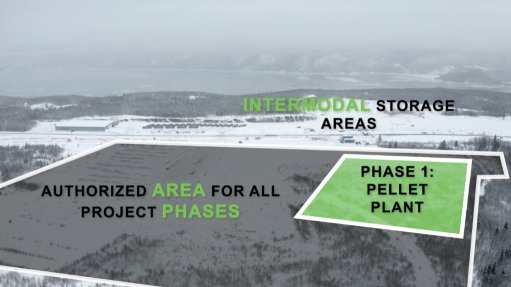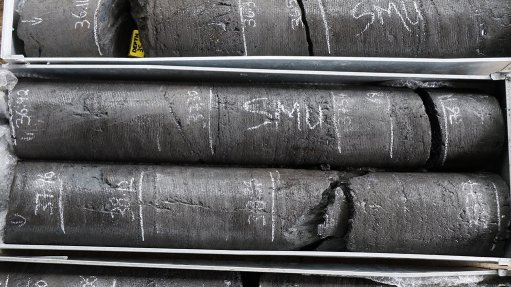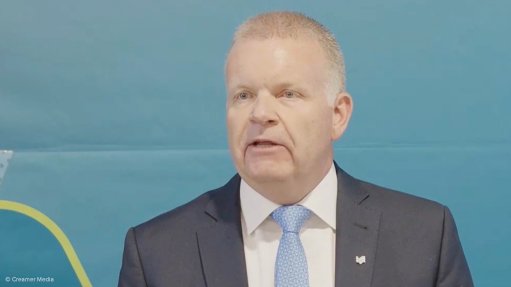Rare earth boss sees 'long, hard process' to loosen China’s grip
Western nations will take years to develop enough rare earth processing capacity to limit China’s dominance over the critical ingredients, according to industry veteran and former Molycorp boss Mark Smith.
Beijing, which has been curbing some critical mineral exports since 2023, tightened sales of seven rare earths in April, in response to aggressive tariffs from Washington. The squeeze caught key buyers unprepared. The Trump administration is now using Cold War-era powers to prioritise and fund rare-earth mining projects it deems strategic.
“It’s clearly a wake up call, and unfortunately we waited until now to really listen to that call,” Smith said in an interview last week. “We need to have capabilities so that we have something more than zero.”
When China last used its grip on rare earth metals in a diplomatic dispute — temporarily cutting off exports to Japan 15 years ago — Smith was running the only rare-earth mine in the US, as chief executive officer of Molycorp. As prices zoomed higher, he attempted to build out a mines-to-magnets supply chain.
The plan faltered, not least in the wake of falling prices as Chinese exports resumed, and Smith left in 2012. Burdened with debt and tough Chinese competition, the company eventually filed for bankruptcy in 2015.
Molycorp “needed more support, and they could not get it from the government at that time,” Smith said.
Smith is now CEO of NioCorp Developments and along with a number of former colleagues from Molycorp, is developing a new mine in Nebraska which could produce rare earth elements as byproducts, including terbium and dysprosium, which Beijing started controlling earlier this year. It will also extract scandium, a relatively abundant rare earth, along with minor metals niobium and titanium.
PERMITTING PAINS
The Nasdaq-listed company has all the environmental permits it needs and is applying for a grant from the US Department of Defense, as well as loans from the Export-Import Bank of the United States and its UK and German equivalents, Smith said. It will then begin the three-year process of building the mine as soon as later this year, he added.
“We have all of our permits in hand to start construction today,” Smith said. “Almost every other mining project that I can think of in the United States is into the permitting nightmare of litigation and appeals.”
Even with “zero permitting risk,” production would start in 2029 at the earliest — a reminder of just how long even approved mines can take to get to production, even when companies and governments around the world are frantically trying to find sources of supply.
Smith argues the last crisis was a cautionary tale. Tokyo set about reducing reliance on China, using government money to create a stockpile and invest in a mine in Australia run by Lynas Rare Earths.
In 2010, Japan “saw the issue and did something to deal directly with it — they supported Lynas,” Smith said over video chat. The company is now one of the largest miners and refiners outside of China, and supplies about 30% of Japan’s rare earth needs. It was not an overwhelming win — not least given the time required and cost — but a crucial one.
The reaction in the US was different. While firms and the government initially looked to build up domestic suppliers, a subsequent crash in prices meant Chinese companies were the cheapest suppliers. That mistake is now being rectified.
SEEKING ALTERNATIVES
“Every time we go to Washington, DC, all that we hear about is critical strategic minerals, particularly the heavy rare earths,” he said. “They are the number-one priority in the country right now.”
Past efforts to push back have made a difference, though.
The successor to Molycorp, now called MP Materials, produces neodymium and praseodymium elements used in magnets. Smith argues it’s because of the existence of Lynas and MP Materials that China didn’t impose export controls on those two elements — a supply chain Beijing doesn’t completely control.
However, no firm outside of China can yet produce significant quantities of the terbium, dysprosium or samarium limited by Beijing and necessary for magnets to endure high operating temperatures. By far the biggest sources of those elements have been in China and Myanmar, with almost all the refining and processing done at Chinese plants.
“We have resources in the United States. We have resources in Australia. We have resources in Canada. Those are the ones that we need to go after,” said Smith.
“We need to start building the facilities that we need, onshore, to address this problem,” but it’s going to be a “long, hard process” until these metals can be produced at volume and do away with China’s negotiating card, he said.
Article Enquiry
Email Article
Save Article
Feedback
To advertise email advertising@creamermedia.co.za or click here
Announcements
What's On
Subscribe to improve your user experience...
Option 1 (equivalent of R125 a month):
Receive a weekly copy of Creamer Media's Engineering News & Mining Weekly magazine
(print copy for those in South Africa and e-magazine for those outside of South Africa)
Receive daily email newsletters
Access to full search results
Access archive of magazine back copies
Access to Projects in Progress
Access to ONE Research Report of your choice in PDF format
Option 2 (equivalent of R375 a month):
All benefits from Option 1
PLUS
Access to Creamer Media's Research Channel Africa for ALL Research Reports, in PDF format, on various industrial and mining sectors
including Electricity; Water; Energy Transition; Hydrogen; Roads, Rail and Ports; Coal; Gold; Platinum; Battery Metals; etc.
Already a subscriber?
Forgotten your password?
Receive weekly copy of Creamer Media's Engineering News & Mining Weekly magazine (print copy for those in South Africa and e-magazine for those outside of South Africa)
➕
Recieve daily email newsletters
➕
Access to full search results
➕
Access archive of magazine back copies
➕
Access to Projects in Progress
➕
Access to ONE Research Report of your choice in PDF format
RESEARCH CHANNEL AFRICA
R4500 (equivalent of R375 a month)
SUBSCRIBEAll benefits from Option 1
➕
Access to Creamer Media's Research Channel Africa for ALL Research Reports on various industrial and mining sectors, in PDF format, including on:
Electricity
➕
Water
➕
Energy Transition
➕
Hydrogen
➕
Roads, Rail and Ports
➕
Coal
➕
Gold
➕
Platinum
➕
Battery Metals
➕
etc.
Receive all benefits from Option 1 or Option 2 delivered to numerous people at your company
➕
Multiple User names and Passwords for simultaneous log-ins
➕
Intranet integration access to all in your organisation





















